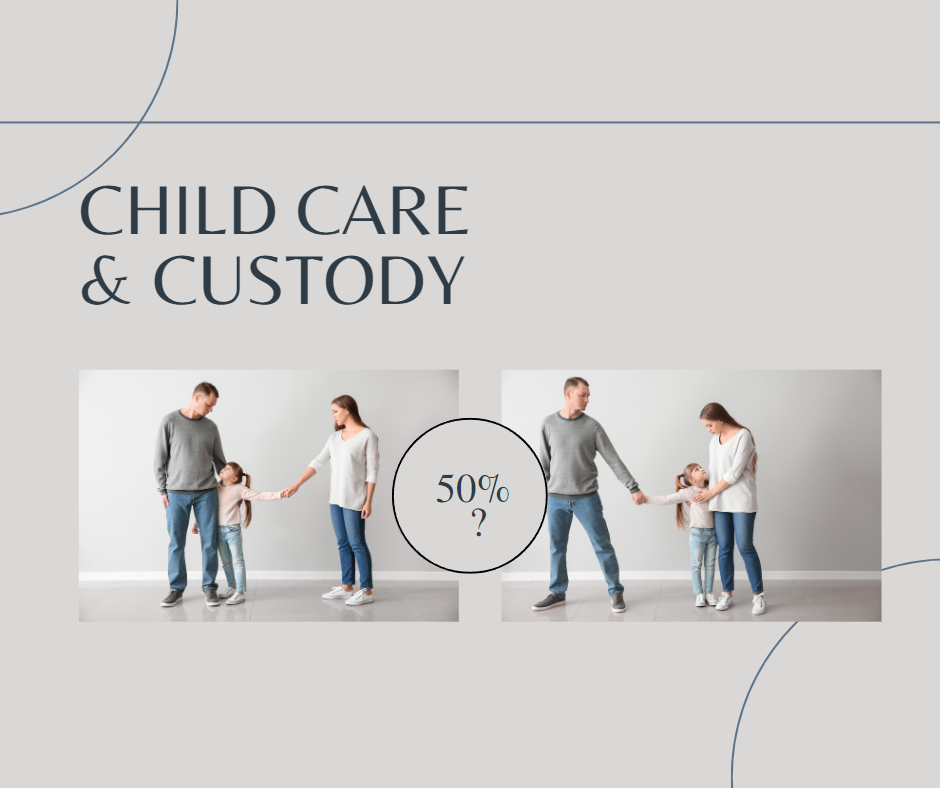
For those who were following our articles, in the last two weeks we dealt with matters relating to Separation or/and Divorce. We have seen the difference between the two and also looked into the matter of maintenance (alimony). This week we are touching on one of the most important matter that many couples who are parents – married or otherwise – face when they come to end their relationship. The issue of child care and custody.
Let’s start from the beginning. Unless you’re happily married – and sometimes even then – you can’t just up and decide that you’re going to go your separate ways and forget the kids. Whether you’re divorcing or separating, if you want to regulate how each of the parents deals with the children you’ll have to go to mediation.
Let’s make a few terms clear. Care is simply what it means – taking care of the child. Spending time with them, running chores, doing homework, picking them up from school, taking them to sport activities and the like. That’s care. Custody on the other hand is NOT with whom the child is going to live. Just because the child lives with the mother doesn’t mean that she has custody. On the other hand, just because the father has joint custody with the mother doesn’t mean he can’t take decisions without the consent of the mother, as we shall see.
So, whereas care is what we do together with and for the child, custody is how we exercise parental authority over it. So, when we decide that Jake will be attending a private school not a government educational facility, that is a custodial activity. The child, at least of a certain age, doesn’t get to decide which school he or she is going to. But taking the child to school, preparing the lunch, doing homework is care not custody.
Another term which is frequently confused is primary residence. Where will the child live? With the mother or the father? The primary residence of choice doesn’t give any special rights to the parent with whom the child will be living. However, when the child is at home with a particular parent, as in emergency situations, that parent will be exercising authority over the child. That parent would have custody albeit short-term and temporary. An emergency health situation may arise where it wouldn’t be practical to delay the decisions in order to consult with the other parent. Similarly, if one parent is abroad without the child, the parent in Malta with the child would exercise full custody over the child until the other parent returns. The converse is true for the parent travelling with the child.
Questions of access, which are intertwined with care, can be at times complicated especially when both parents are working, with one of them employed on a shift basis, for example. Usually, couples agree to alternate access to the child between them over successive days. For example deciding on alternating days of national or religious holidays, or the child’s birthday from year to year, keeping the child on parent’s special occasions, and so on. Naturally all this will go down on a care and custody agreement, drawn up by the respective lawyers of both parties, read by a mediator and ultimately ratified by a judge sitting in the Family Court. These agreements, usually, also cover maintenance expenses for the child and travel arrangements abroad.
The worst thing that can happen to a child is that he/she is used as leverage by one of the parties in order to gain some financial advantage. Naturally, if the parties fail to agree they’ll have to go before the Family Court where decisions will be taken for them. A ruling, decided in the best interests of the child, will be delivered which they’ll have to follow.
These arrangements are so particular and varied that giving examples would be quite pointless. Anyone needing this sort of arrangement would have to have a serious discussion with his or her lawyer who would map out a strategy and formulate a plan that would suit both of the parents, but mostly, the children first and foremost.






